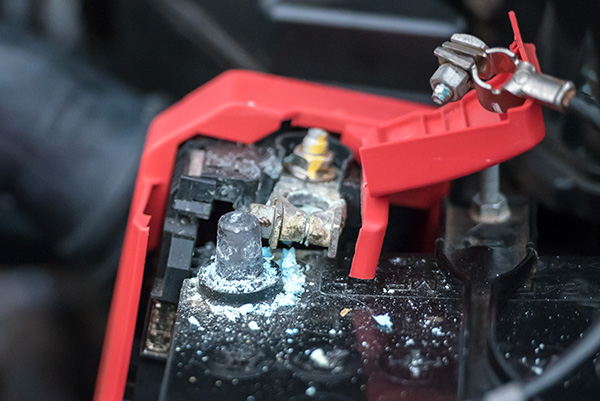
Car battery corrosion is a common issue that can affect the performance and lifespan of your vehicle's battery. Over time, corrosion can build up on the terminals, hindering the flow of electricity and potentially causing starting and electrical problems. Fortunately, cleaning battery corrosion is a relatively simple task that can be done with a few household items and minimal effort. In this guide, we'll walk you through cleaning car battery corrosion step by step, ensuring your vehicle stays powered up and ready to go.
Understanding Car Battery Corrosion
Before the cleaning process, let's briefly discuss what battery corrosion is and why it occurs. Battery corrosion results from a chemical reaction between the battery terminals and the sulfuric acid present in the battery. This reaction produces a white, powdery substance known as corrosion, which can accumulate on the terminals over time. Corrosion creates a barrier between the terminals and the battery cables, inhibiting the flow of electricity and potentially leading to starting problems or electrical issues in your vehicle.
Signs of Battery Corrosion
Identifying battery corrosion is the first step in addressing the issue. Some common signs of battery corrosion include:
- Difficulty starting the engine
- Corrosion buildup on the battery terminals
- Diminished electrical system performance
If you notice any of these signs, it's essential to inspect your battery terminals and clean any corrosion to ensure optimal battery performance.
Materials Needed
Before you begin the cleaning process, gather the following materials:
- Baking soda
- Water
- Wire brush or battery terminal cleaner
- Safety gloves and eye protection
- Old toothbrush or small brush
- Clean cloth or rag
Step-by-Step Guide to Cleaning Battery Corrosion
Now that you have your materials ready, follow these steps to clean car battery corrosion effectively:
- Safety First: Before working on your battery, ensure the engine is turned off, and the vehicle is parked in a safe, well-ventilated area. Put on safety gloves and eye protection to protect yourself from any contact with corrosive materials.
- Disconnect the Battery:
- Use a wrench to loosen the negative (-) battery terminal nut and remove the cable from the terminal.
- Repeat this process for the positive (+) terminal.
- Always disconnect the negative terminal first to prevent accidental electrical arcing.
- Mix a Cleaning Solution: In a small container, mix a solution of baking soda and water. Aim for a paste-like consistency that will effectively dissolve the corrosion on the terminals.
- Apply the Solution: Using an old toothbrush or small brush, apply the baking soda solution to the corroded areas on the battery terminals. Scrub gently to loosen the corrosion buildup and ensure the terminals are clean.
- Scrub with a Wire Brush: Use a wire brush or battery terminal cleaner to scrub the terminals and remove any remaining corrosion. Be thorough but gentle to avoid damaging the terminals.
- Rinse with Water: Once the corrosion is removed, rinse the terminals with clean water to wash away any remaining residue. Use a clean cloth or rag to dry the terminals thoroughly.
- Reconnect the Battery:
- After the terminals are clean and dry, reattach the battery cables to the terminals.
- Start with the positive (+) terminal.
- Then reconnect the negative (-) terminal.
- Tighten the terminal nuts securely to ensure a good connection.
- Apply Terminal Protector: To prevent future corrosion, consider applying a terminal protector spray or coating to the battery terminals. This will help keep the terminals clean and free of corrosion buildup.
Additional Tips for Battery Maintenance
In addition to cleaning battery corrosion, here are a few tips to help maintain your car battery:
- Regularly inspect the battery terminals for signs of corrosion and clean them as needed.
- Keep the battery securely fastened in place to prevent vibration damage.
- Avoid overcharging the battery, as this can lead to corrosion and reduce battery life.
- If your battery is more than three years old or showing signs of wear, consider having it tested by a professional to ensure it's still in good condition.
Ready to ensure your car battery stays corrosion-free? Trust Future Auto Service for expert battery maintenance and keep your vehicle running smoothly. Book your visit today and enjoy worry-free driving!